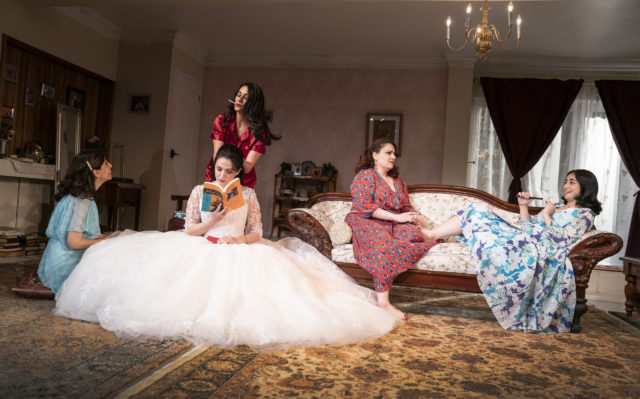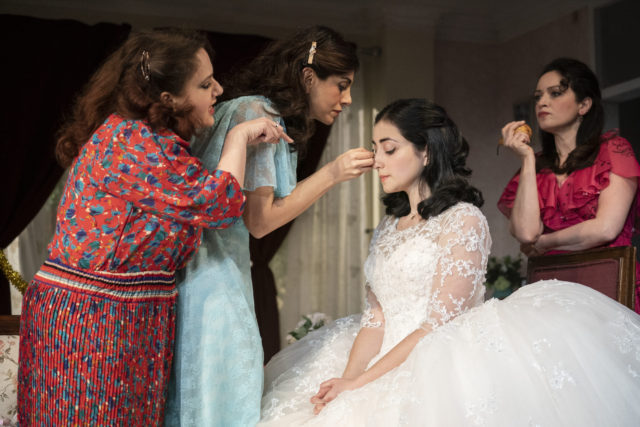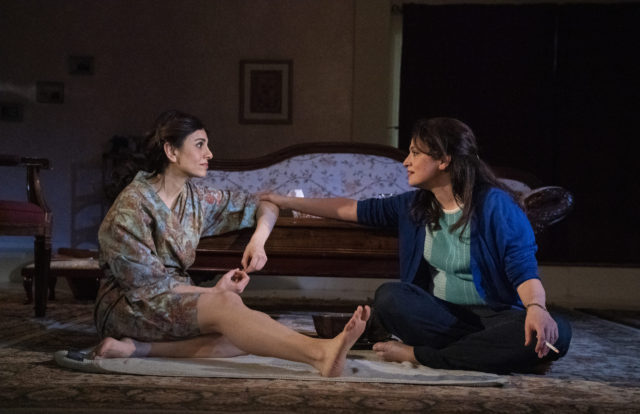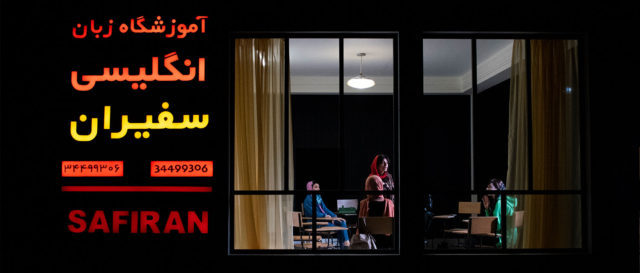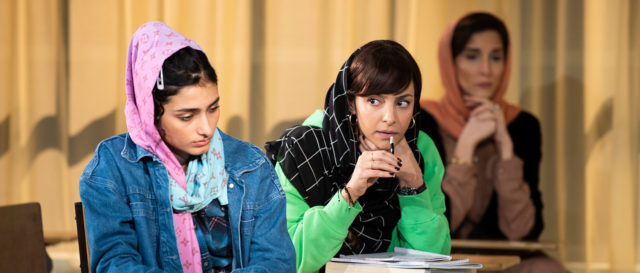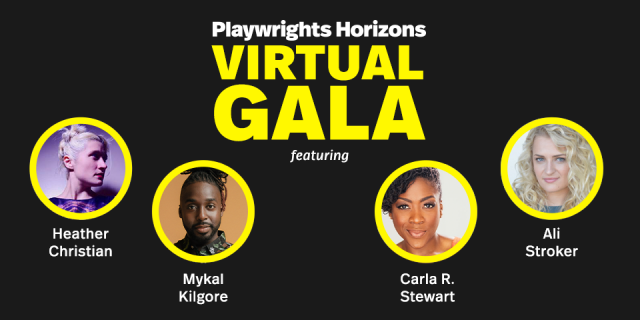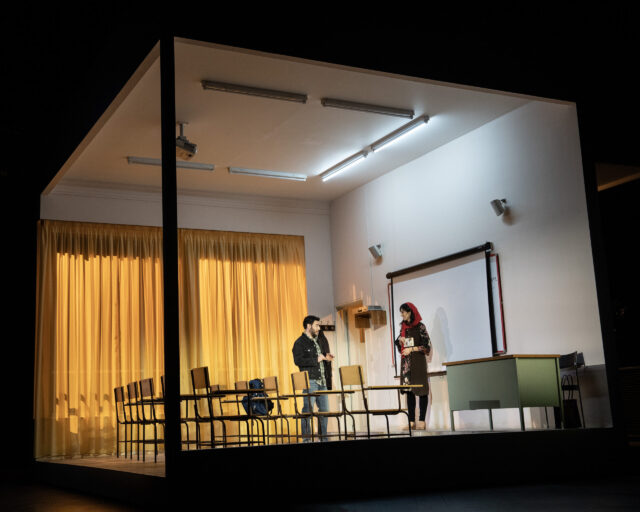
Omid (Hadi Tabbal) and Marjan (Marjan Neshat) form an intimate bond in Sanaz Toossi’s English (photo by Joan Marcus)
ENGLISH
Todd Haimes Theatre
227 West Forty-Second St. between Broadway & Eighth Ave.
Tuesday – Sunday through March 2, $72-$313
www.roundabouttheatre.org
It might be difficult for non-English speakers to learn the world’s most spoken language, but Sanaz Toossi’s Pulitzer Prize–winning play, English, has made a smooth transition from the Linda Gross Theater to Broadway. In fact, the Atlantic-Roundabout coproduction is even more powerful now given the current US administration’s war on illegal (and legal) immigration and America First policies.
According to the Oxford Digital Institute, English “is the language of international communication,” spoken in more than one hundred countries even though it “is a hard language to learn due to its complex grammar rules, pronunciation variations, and vast vocabulary . . . riddled with exceptions and irregularities, making it difficult to master. Additionally, English has a diverse range of accents and dialects, making it challenging for nonnative speakers to understand and communicate effectively.”
Everything I wrote in my review of the off-Broadway premiere in February 2022 still holds true: Concepts of home and personal identity lie at the heart of Toossi’s poignant and involving work, which continues at the Todd Haimes Theatre through March 2. The play is set in a small classroom in Karaj, Iran, in 2008, where Marjan (Marjan Neshat) is teaching basic English to four students who are planning on taking the TOEFL, the Test of English as a Foreign Language, for different reasons. Marjan insists that they speak only English in the class rather than Farsi, their native tongue.
Roya (Pooya Mohseni) wants to be able to speak with her new granddaughter, who lives in Canada with Roya’s son and his wife, who are not teaching the child Farsi. “I hope you not forget. Nate is not your name,” she tells her son, who used to be known as Nader.
Elham (Tala Ashe) has passed her MCATs but needs to learn English so she can study gastroenterology in Australia. “My accent is a war crime,” she angrily admits.
Omid (Hadi Tabbal) has an upcoming green card interview in Dubai, but his English is already excellent, nearly accentless. When asked why people learn language, he says, “To bring the inside to the outside.”
Goli (Ava Lalezarzadeh) is an eighteen-year-old girl who believes Ricky Martin is a poet. “People like accent,” she says, not ashamed of who she is.
After a presentation by Goli doesn’t go particularly well, Marjan, a married woman who spent nine years in Manchester before moving back to Iran with her family, says, “Don’t be sorry! We were speaking English with each other. I think it’s one of the greatest things two people can do together.”
As Elham’s frustration with English builds — she repeatedly uses Farsi in class, accumulating negative points — she gets into disagreements with everyone else, speaking frankly, without apology. “Goli, people hear your accent and they go oh my god it is so funny you are so stupid. . . . Okay if I have accent, bad TOEFL score. Omid has accent, no green card. Roya’s accent? Disaster.” Some of them equate the attempted erasure of their Iranian accent when speaking English with the loss of their identity, as if they are surrendering their unique culture. “Don’t you think people can do us the courtesy of learning our names?” Elham says to Marjan, who went by “Mary” when she lived in England.
“English isn’t your enemy,” Marjan insists. “English is not to be conquered. Embrace it. You can be all the things you are in Farsi in English, too. I always liked myself better in English.” But Marjan won’t acknowledge to herself that that is exactly the problem. “I feel like I’m disappearing,” she says later to Omid.
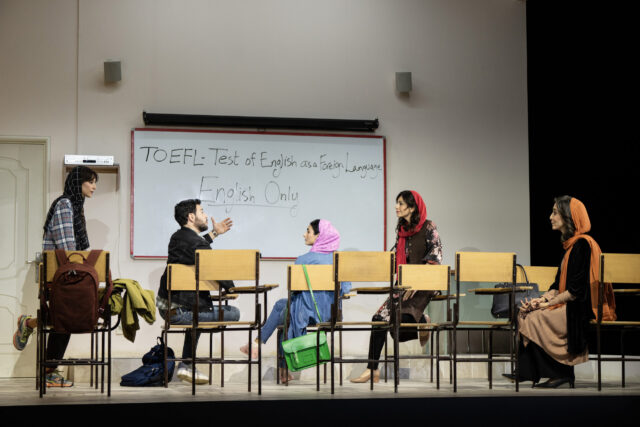
Four students and a teacher learn about life and language in English (photo by Joan Marcus)
English is beautifully written by Toossi (Wish You Were Here) and gracefully directed by Knud Adams (I’m Revolting, Pulitzer Prize winner Primary Trust), giving each character room to develop. Although they go back and forth between English and Farsi, whenever they speak English, the actors use Iranian accents, but when they talk in Farsi, they lose the accent, sounding like plain old longtime Americans, a device that serves as a metaphor for colonialism, nation-building, and ethnocentrism.
One of the only changes from the Atlantic version is that the song Goli plays for show-and-tell has switched from Shakira’s “Whenever, Wherever” to Martin’s “She Bangs,” in which the Puerto Rican heartthrob sings, “Talk to me. Tell me your name. / You blow me off like it is all the same. / You lit a fuse and now I’m ticking away like a bomb. / Yeah baby.”
Marsha Ginsberg’s revolving cube set is open on two sides, revealing the inside and the outside; the movement feels even stronger this time, more precarious. When the rotation stops so a scene can begin, a stanchion might block part of your view of a character, as if they are disappearing.
Enver Chakartash’s costumes meld traditional Iranian clothing, like head scarves, with American accents. The cast is exceptional, quickly forming a cohesive unit; it probably wouldn’t be too much of a stretch to assume they have each had to deal with the issue of making sacrifices to learn a new language and culture in some way, as all of them, in addition to the bilingual Toossi, were either born in Iran or Lebanon or their parents were. English was actually Toossi’s NYU thesis, written in response to Donald Trump’s Muslim travel ban and anti-immigration policies.
About halfway through the play, Marjan tells the class, “If you are here to learn English, I am going to ask you to agree that here in this room we are not Iranian. We are not even on this continent. Today I will ask you to feel any pull you have to your Iranian-ness and let it go. Keep it outside the wall of this classroom. In this room, we are native speakers. We think in English. We laugh in English. Our inhales, our exhales — we fill our lungs in English. No more Farsi. Can we agree to that?” Toossi understands the kind of sacrifices it takes to make a new life in a new country.
In the original production, Farsi was never actually spoken, but on Broadway, the final words are now in the Iranian tongue, a sharp parting shot at what’s happening in America and around the world.
[Mark Rifkin is a Brooklyn-born, Manhattan-based writer and editor; you can follow him on Substack here.]
